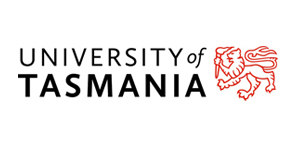Co-Chairs: Dr Stephen Whyte (QUT) and Prof. Swee Hoon Chuah (UTAS)
Jointly hosted by Queensland University of Technology’s Centre for Behavioural Economics, Society and Technology (BEST Centre) and University of Tasmania’s Behavioural Lab, this Special Session looks at how behavioural economics insights and methods can inform policy interventions to help people achieve better outcomes for themselves and for society.
Our speakers include:
- A/Prof Stuart Crispin, Interim Executive Dean, College of Business and Economics, University of Tasmania
- Harry Greenwell, Senior Adviser, Behavioural Economics Team of the Australian Government (BETA), Department of the Prime Minister and Cabinet
- Prof. Uwe Dulleck, Co-Director of the BEST Centre. School of Economics & Finance, Queensland University of Technology
- Prof. Rebekah Russell-Bennett – Co-Director of the BEST Centre, School of Advertising, Marketing & Public Relations, Queensland University of Technology
This session is sponsored by:


Panel members:
Professor Tom Smith, Head of Finance Department, Macquarie Business School
Luke Meehan, Senior Manager for Economic and Risk Analysis, Australian Securities and Investments Commission
Talei Parker, Assistant Director, Data Services, Strategy, Integration and Services Division, Australian Bureau of Statistics
Chair: Associate Professor Dan Daugaard, Tasmanian School of Business & Economics
Theme: Financial Distress Indices for Australian Listed and Unlisted Companies.
Description: This session profiles an impactful research collaboration between the Australian Securities & Investments Commission (ASIC) and Macquarie University. This research initiative has led to risk analysis tools consulted by financial market regulators to monitor the Australian corporate landscape and financial markets, and inform their policy responses. The project represents an extension of Financial Distress Indices beyond Listed firms to now incorporate Unlisted firms. A major output from this research is a Dashboard tool which demonstrates the cross-sector Financial Vulnerability Index heatmap with time-series dimensions for each sector. The project employs the innovative Bureau Of Statistics’ Business Longitudinal Analysis Data Environment created by the Australian Bureau of Statistics. The panel therefore includes an overview of the new research trajectories this data environment is facilitating.
Chair: Joaquin Vespignani and Graeme Wells
Speakers:
Warwick McKibbin (ANU)
Leonora Risse (RMIT) A gender lens on the workforce impacts of the COVID-19 pandemic in Australia
Nicole Adams (RBA) The Effect of the COVID-19 Income Support Policies on Household Spending in Australia
Chair: Maria Yanotti
Presentation:
Lifting diversity and inclusion in economics: How the Australian Women in Economics Network put the evidence into action
Authors: Rebecca Cassells (Curtin University), Leonora Risse (RMIT University), Danielle Wood (Grattan Institute), Duygu Yengin (University of Adelaide)
Panel discussion:
Expanding diversity and inclusion in economics: What is proving to work
Panel:
Dr Matthew Butlin (South Australian Productivity Commission/Past President of the Economic Society of Australia)
Prof Swee Hoon Chuah (UTAS)
Jacqui Dwyer (RBA)
Chair: Maria Yanotti
Presentation:
Chris Leishman, Prof at UniSA “Housing: Taming the elephant in the economy” (the report to the Housing and Productivity Research Consortium)
Panel discussion:
Housing as a System considering its spillover effects on other social and economic issues, including discussion on the Falinski report
Panel:
Chris Leishman, Prof at UniSA
Peter Tulip, Chief Economist at the Centre for Independent Studies
Nicholas Proud, CEO of PowerHousing Australia
Chair: Bao Nguyen
This session aims to provide academics, policymakers, and practitioners with a valuable forum for discussion and critical analysis of the major current issues and challenges that interrelate climate changes, energy shocks, commodity price uncertainty and macroeconomic performance.
Global Economic Impacts of Climate Shocks, Climate Policy and Changes in Climate Risk Assessment
Warwick Mckibbin
Oil supply shock and fuel tax policy in Australia: insights from a dynamic CGE framework
Locky Liu
Chair: Darla Hatton MacDonald
Water resource management remains a challenging sustainable development goal (SDG 6) with 40% of the world’s population facing water scarcity issues. In Australia, the allocation of water amongst different users remains a pressing issue despite the last decade of water reform and development of water sharing plans. This session will show-case a number of different presentations on water issues including: water reallocation within river basins, cap and trade within a groundwater system and urban water.
Urban residential water demand and household size: A meta-regression analysis
Alemken Jegnie
Economics of plantation forestry water allocations and cap and trade policy: A case study from Australia’s Green Triangle.
Courtney Regan
Australian public preferences for water re-allocation in the Murray-Darling Basin
Alec Zuo
Water redistribution: explaining rankings, protests and willingness to pay
Darla Hatton Macdonald
Chair: Peter Martin The Conversation
Speakers:
Warwick McKibbin ANU
Danielle Wood Grattan Institute
Isaac Gross Monash University
Sally Auld JB Were
Session sponsor:

Chair: Paul Blacklow
Speakers: Angela Jackson, Jeff Borland & Saul Eslake.
In this special session, the panel will be asked to explain the impact of the Covid period on worker and firm behaviour and the labour market. They will discuss which effects were transitory and experienced unevenly and which were more long-lasting and universal. The panel will also be asked to help explain recent puzzles in Australian labour market statistics and whether we are measuring the labour market appropriately. Finally, the panel will be asked to identify future challenges in the Australian labour market and why/what policy interventions, if any, are required to address them.
Chair: Clinton Levitt
The special session brings together key participants from industry, government, and academics to discuss pressing and emerging issues in a transforming Australian electricity sector. Key transformations facing most power systems include the rapid and ongoing transition away from conventional generation towards power systems with high renewable penetration, large grid-scale storage, the growth of distributed (behind-the-metre) generation and storage, and the emergence of hydrogen.
The panel includes:
• Bess Clark, CEO at Marinus Link
• Anton Voss, CEO at Renewables, Climate and Future Industries Tasmania (RecFIT)
• Bruce Mountain, Director of the Victoria Energy Policy Centre
• Caroline Wykamp, Executive General Manager Commercial, Hydro Tasmania
